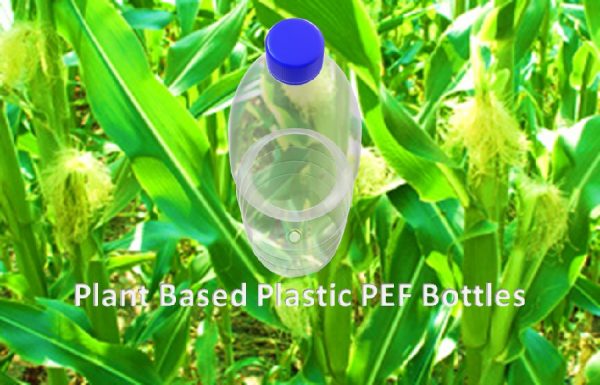
Plant Based Biodegradable PEF Plastic Bottles
There are many efforts to put an end to single use of plastics. If bigger companies take part in this effort it could be a role model and inspire others. Recently, many big companies like Coca Cola, L’Oreal have come together in support of projects for manufacturing of plant based biodegradable bottles.
There is a tremendous increase in single-use plastic and over the past five decades the production has nearly doubled. Beverage companies like Pepsi and Coca Cola are great contributors for single use plastic bottles and just beverage company’s production alone produce over 500 billion single use plastic in a year.
Coca Cola, Carlsberg, Danone and L’Oréal are the companies that are supporting the “Paper Bottle Project,” executed by Dutch renewable chemicals company Avantium, paper packaging developer BillerudKorsnäs, and bottle manufacturers ALPLA. The project will use plant-based sugar rather than fossil fuels to make bottles.
- Carlsberg is one the four largest breweries in the world. It has been associated with Paper Bottle Company from longtime which is an organization that is committed to reduce plastic waste. Together with Carlsberg, Paper Bottle company has come up with project on developing the world’s first paper beer bottle made from sustainable sourced wood fiber that is both 100% bio-based that contain plant-based polymer PEF (polyester polyethylene-furanoate) which makes these bottles fully recyclable”.
- The Netherland’s renewable chemicals company Avantium got support from beer-maker Carlsberg to make and sell it pilsner in cardboard bottles with inner layer lining of plant plastic. Says Avantium’s CEO, Tom Van Aken – “he hopes to get major investment for the world -leading bioplastics plant in Netherlands by end of this year”. Company wants to make plastics from plant sugars. This project has backing of Coca Cola and Danone. These companies want to tackle the damage caused by plastic bottles on the environment.
“This plastic has very attractive sustainability credentials because it uses no fossil fuels and can be recycled – but would also degrade in nature much faster than normal plastics do,” said Avantium chief executive Tom van Aken.
This plant PEF reportedly has better thermal barrier properties than the standard PEF. Unlike other plastics, plant-based polymers are 100% recyclable and degradable. One can rot them in a composter or reuse them if they wish.
PEF could replace PET in applications like films, fibers and bottles for the packaging of food and non-food products, juices, soft drinks, water and alcoholic beverages.
References:
Author: Sumana Rao | Posted on: May 29, 2020
« FSSAI facilitates food businesses amid COVID 19 pandemic Grandson Innovates Jelly Drops To Help Grandma With Dementia Stay Hydrated »






















Write a comment